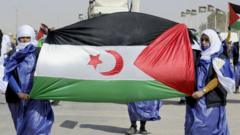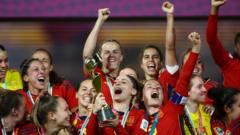King Mohammed VI, who also serves as the country's spiritual leader, expressed deep concern for the well-being of his people in a statement conveyed through Ahmed Toufiq, the Islamic affairs minister. He articulated that the strain on household budgets has created a dilemma for many families who wish to uphold their religious traditions but find themselves unable to afford even basic necessities, let alone the customary sheep for the Feast of Sacrifice.
With Morocco grappling with severe drought conditions over the past seven years, the impact has been far-reaching, resulting in significantly lower agricultural yields and skyrocketing food prices. Rainfall has plummeted to 53% below the average of the last three decades, creating a crisis not just in livestock numbers but in water supply and food security across the nation.
The king’s statement provides not only a religious perspective but also an acknowledgment of current socio-economic realities. He underscored his commitment to supporting the people by performing the Eid sacrifice on their behalf, hoping to facilitate a meaningful observance of the festival even amid adversity.
This unprecedented encouragement from the monarchy has been met with relief by many, as it allows families to focus on the spirit of the holiday without the overwhelming financial burden of the traditional sacrifice. While the economic landscape remains uncertain, the king's gesture reflects an understanding of the delicate balance between adherence to tradition and the harsh realities faced by his subjects.
With Morocco grappling with severe drought conditions over the past seven years, the impact has been far-reaching, resulting in significantly lower agricultural yields and skyrocketing food prices. Rainfall has plummeted to 53% below the average of the last three decades, creating a crisis not just in livestock numbers but in water supply and food security across the nation.
The king’s statement provides not only a religious perspective but also an acknowledgment of current socio-economic realities. He underscored his commitment to supporting the people by performing the Eid sacrifice on their behalf, hoping to facilitate a meaningful observance of the festival even amid adversity.
This unprecedented encouragement from the monarchy has been met with relief by many, as it allows families to focus on the spirit of the holiday without the overwhelming financial burden of the traditional sacrifice. While the economic landscape remains uncertain, the king's gesture reflects an understanding of the delicate balance between adherence to tradition and the harsh realities faced by his subjects.




















